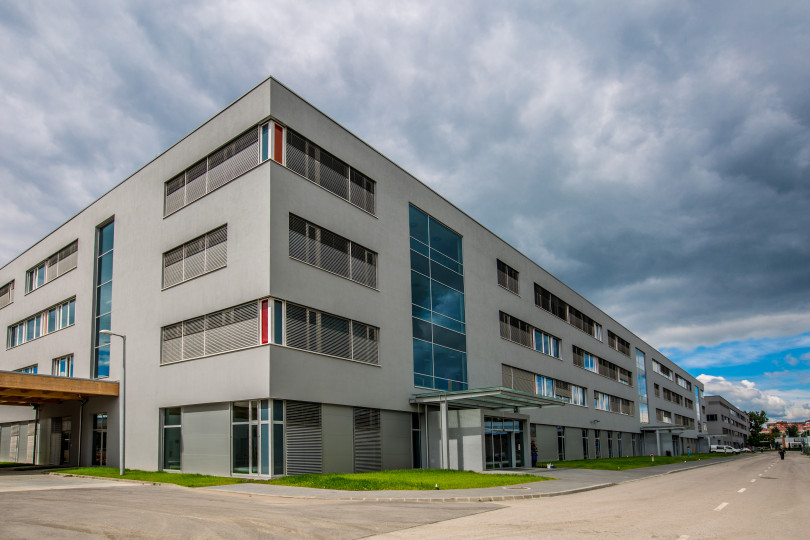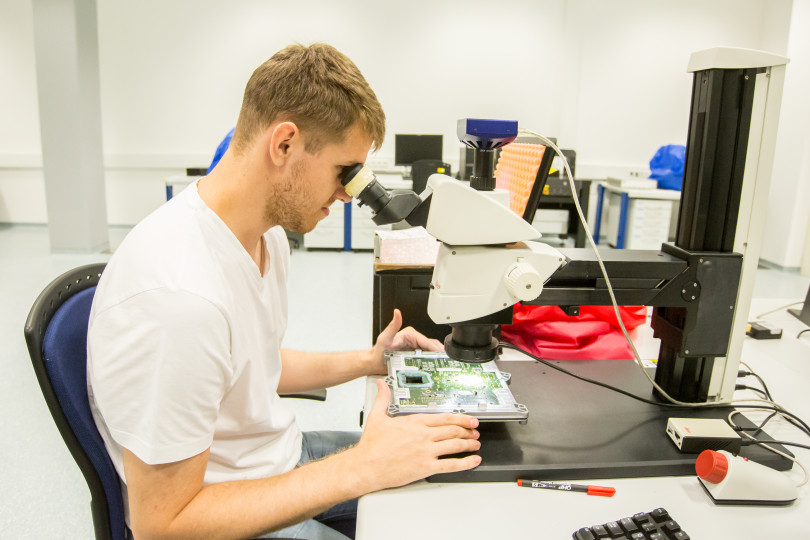Budapest – The Bosch Engineering Center Budapest is celebrating the tenth anniversary of its foundation. In terms of automotive engineers, it has grown into the Bosch Group’s second largest European research and development base within a decade. “The continuous expansion of the Engineering Center Budapest’s activities is down to the skills and commitment of Hungarian engineers. They are the key to the growth we have achieved in the space of ten years.” From 300 in 2007, number of engineers working there more than doubled to 700 by 2012, and the momentum kept on building: by autumn 2013 there were 900 engineers working on the most advanced automotive developments, and today there are 1,300, “ said Oliver Schatz, Senior Vice President Technical at Robert Bosch Kft. and head of the Engineering Center Budapest. The engineers work at a new facility recently inaugurated in August and focus on the development of electronics and components for driver assistance and engine control systems.
Hungarian engineering skills as an engine of innovation
The predecessor of the Engineering Center Budapest was a five-person department set up in 2000. The initial project was to improve automatic transmission. Between 2000 and 2005, new R&D sections were formed in the areas of electrical controls, sensors and electric vehicle systems. In October 2005, these departments merged into a standalone corporate unit, the Bosch Engineering Center Budapest. The workload of the new facility grew constantly, spreading into the fields of vehicle electronic control systems, ABS and many hardware and software applications. Reversing and parking radars were added to this list in 2007, and advanced dashboard devices and multifunctional dashboard displays in 2008. The center currently has 11 departments. It also has an automotive workshop that fits cars with the latest developments in driver support systems based on ultrasonic, video and radar sensors.
New, 32 billion forint building complex
To accommodate the rapid expansion of development projects and engineering staff, Bosch has built new premises for the engineering center as part of its new central complex in Budapest. The group has spent 32 billion forints on this development since 2011 and the new building has workstations for some 1000 engineers. With a total floor area of 51,000 square metres, the new building contains offices, research laboratories, teaching workshops and community and inspirational spaces. Bosch engineers are engaged in lifetime simulations, reliability tests, analyses and process tests in the new laboratories. That is how they are developing driver assistance systems that will provide higher levels of safety and comfort. Another part of the Budapest complex is a new four-storey car park. Bosch makes no secret that it intends to keep on expanding the projects it has started – and that means more engineers filing more and more patents. Essential for this is the new central building and its state-of-the-art infrastructure.
Mónika Hack
+36 70 510 5516
Bosch has been present in Hungary since 1899. After its re-establishment as a regional trading company in 1991, Bosch has grown into one of Hungary’s largest foreign industrial employers. In financial 2014, its 9 Hungarian subsidiaries had a total turnover of HUF 825 billion and sales of the Bosch Group on the Hungarian market – not counting trade among its own companies – was HUF 183 billion The Bosch Group in Hungary employs 10,500 people (as per April 1, 2015). In addition to its manufacturing, commercial and development business, Bosch has a network of sales and service operations that covers the entire country.
The Bosch Group is a leading global supplier of technology and services. The company employs roughly 360,000 associates worldwide (as per April 1, 2015), and generated sales of 49 billion euros in 2014.* Its operations are divided into four business sectors: Mobility Solutions, Industrial Technology, Consumer Goods, and Energy and Building Technology. The Bosch Group comprises Robert Bosch GmbH and its roughly 440 subsidiary and regional companies in some 60 countries. Including its sales and service partners, Bosch is represented in roughly 150 countries. This worldwide development, manufacturing, and sales network is the foundation for further growth. In 2014, Bosch applied for some 4,600 patents worldwide. The Bosch Group’s strategic objective is to create solutions for a connected life. Bosch improves quality of life worldwide with products and services that are innovative and spark enthusiasm. In short, Bosch creates technology that is “Invented for life.”
Additional information is available online at www.bosch.hu
*The sales figure disclosed for 2014 does not include the former joint ventures BSH Bosch und Siemens Hausgeräte GmbH (now BSH Hausgeräte GmbH) and ZF Lenksysteme GmbH (now Robert Bosch Automotive Steering GmbH), which have since been taken over completely.







